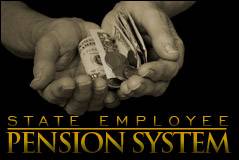Media
Joel Klein Gets the Public Pension Problem
 Joel Klein has an excellent article on teacher pensions in today’s Wall Street Journal:
Joel Klein has an excellent article on teacher pensions in today’s Wall Street Journal:
Whether the investment returns are there or not, defined-benefit pensions require the government to pay retirees a predetermined amount for life. For example, today a teacher in New York City can retire with an annual pension of $60,000 (or more) that is exempt from state and municipal taxes. In short, lots of obligation; little set aside to meet it.
While irresponsible, this kind of behavior makes good political sense. After all, people run for office in the short run, and money spent now—rather than put aside in a pension reserve—is more likely to garner votes. As one legislator recently told me, “When budgets are tight, as they often are, we simply kick the can down the road by underfunding pension obligations.”
That is to say, defined-benefit pensions are subject to political manipulation. Case in point: Act 120 of 2010. Klein goes on to explain that the defined-contribution pensions not only hurt future taxpayers, but students and even teachers (or would-be teachers).
[C]hildren currently in our schools, as well as future students, will be high among those paying the price. To cover the underfunded pension obligations to teachers and other public employees, cities and states have little choice but to divert money from what would otherwise be their operating budgets. And since schools make up a big part of those operating budgets, education will get significantly shortchanged as we make up for past underfunding. …
[W]hile defined-benefit pensions sound good in theory—retirees should have security for their later years—they actually create incentives that impede hiring and keeping the best teachers.
To begin with, these pension systems make the total compensation package much too back-loaded: Pay in the early years is needlessly low, so we lose good people who don’t find the generous benefits at the end worth the lifetime commitment.